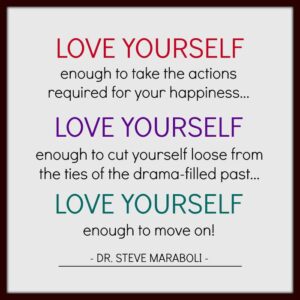 DEFINING SELF-LOVE:
DEFINING SELF-LOVE:
Self-love is the practice of caring for and valuing oneself unconditionally. It involves accepting your strengths and weaknesses, being kind to yourself, and prioritizing your well-being. It is a deep appreciation for who you are, a commitment to your own happiness, and an understanding that you deserve love and respect, both from yourself and others. We often find ourselves seeking external validation, approval, and affection from others, it is easy to forget the significance of turning inward and loving oneself. Self-love, often underrated, is a powerful and transformative force that can shape our lives, relationships, and overall well-being. In this article, we will explore the essence of self-love, why practicing it is important, and the crucial distinction between self-love and narcissism.
WHAT IS SELF-LOVE:
Self-love, at its core, is the practice of nurturing, accepting, and cherishing oneself unconditionally. It’s the commitment to one’s own well-being and happiness, regardless of external circumstances or opinions. Self-love is not about arrogance, selfishness, or vanity, but rather about fostering a profound sense of self-worth and compassion toward oneself. It is the understanding that you are deserving of love, kindness, and care, just as much as anyone else.
- THE IMPORTANCE OF SELF-LOVE:

Emphasize the importance of self-love by explaining that you spend the entirety of your life with yourself. If you don’t love and respect yourself, it can lead to issues like low self-esteem, anxiety, depression, and an inability to maintain healthy relationships. Self-love is the foundation for a happy and fulfilling life.
WHY WE NEED TO PRACTICE SELF-LOVE:
- Boosting Mental and Emotional Health: Self-love is like a protective shield against the harshness of life. When you love yourself, you become more resilient in the face of adversity, stress, and negative self-talk. It leads to higher self-esteem, reduced anxiety, and an improved overall sense of well-being.
 Improved Relationships: When you truly love and accept yourself, you are better equipped to build healthier relationships. You can set boundaries, communicate your needs, and engage in more authentic connections with others. Self-love allows you to love and appreciate others without relying on them for validation.
Improved Relationships: When you truly love and accept yourself, you are better equipped to build healthier relationships. You can set boundaries, communicate your needs, and engage in more authentic connections with others. Self-love allows you to love and appreciate others without relying on them for validation.- Fulfillment and Empowerment: Loving oneself empowers individuals to pursue their dreams and aspirations. It provides the courage to take risks, overcome obstacles, and become the best version of themselves. Self-love can be a driving force behind personal growth and success.

Resilience to Negative Influences: Self-love acts as a shield against external negativity and societal pressures. It helps you resist unhealthy comparisons, unrealistic standards, and judgments from others, allowing you to remain true to your own values and beliefs.
SELF-LOVE vs NARCISSISM:
There is a clear distinction between self-love and narcissism. It is essential to differentiate between self-love and narcissism, as they are often misunderstood and conflated. While self-love is about healthy self-respect and self-care, and narcissism is an excessive self-focus that often disregards the feelings and needs of others. Self-love encourages positive relationships, while narcissism can be detrimental to them.
essential to differentiate between self-love and narcissism, as they are often misunderstood and conflated. While self-love is about healthy self-respect and self-care, and narcissism is an excessive self-focus that often disregards the feelings and needs of others. Self-love encourages positive relationships, while narcissism can be detrimental to them.
THE DIFFERENCE:
- Focus on Others: Self-love involves taking care of your well-being while respecting the well-being of others. Narcissism, on the other hand, is characterized by excessive self-centeredness, often at the expense of others.

- Healthy Relationships: Those who practice self-love can have mutually fulfilling relationships with others, as they can give and receive love and support. Narcissists, however, often struggle in their relationships, as they prioritize their own needs above all else.
- Empathy and Compassion: Self-love fosters empathy and compassion for oneself and others. Narcissism tends to inhibit these qualities, as narcissists are often preoccupied with their own desires and image.
-
Self-Esteem: Self-love leads to healthy self-esteem, while narcissism often masks deep-seated insecurity. Narcissists may appear confident, but their confidence is often fragile and easily shattered.
 PUTTING SELF-LOVE INTO DAILY PRACTICE:
PUTTING SELF-LOVE INTO DAILY PRACTICE:
Offer practical tips and examples for implementing self-love in daily life. This might include techniques like practicing self-compassion, prioritizing self-care activities, setting boundaries, journaling, or seeking therapy if needed.
THE POSITIVE OUTCOMES:
Explain how embracing self-love can lead to a more positive and content life. Self-love can boost self-esteem, reduce stress, and improve overall mental and emotional well-being. It also enhances one’s capacity to love and support others in a healthier way.
THE EMPTY CUP METAPHOR:
Emphasize the idea that you cannot give to others if your own cup is empty. Self-love is not selfish; it’s a prerequisite for being able to give love, support, and kindness to others.
